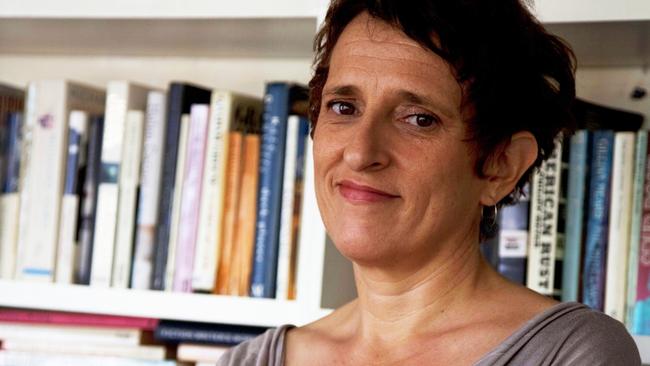Charlotte Wood’s ‘Natural Way of Things’ a gripping novel
Charlotte Wood’s new novel The Natural Way of Things reveals a keen intelligence and an audacious imagination at work.

Here’s one to put on your radar: Charlotte Wood’s new novel The Natural Way of Things, to be published by Allen & Unwin on September 23. It’s rare to pick up a novel and from the opening pages be not only gripped by the story on the page but also by the keenness of the intelligence and audacity of the imagination at work.
More than that, this is a work of fiction unlike most, one that will have people reaching for comparisons in an attempt to identify it. The publicity material mentions The Lord of the Flies and Margaret Atwood’s The Handmaid’s Tale, and I can see why, but other works came to my mind. First, though, that dreaded (by authors) question: what is The Natural Way of Things about? It’s such a constantly surprising, expectation-defying story that I don’t want to reveal too much, but the set-up is this: 10 young women, drugged and kidnapped, are imprisoned in an outback camp, surrounded by an electric fence. Their heads are shorn and they are dressed in rough tunics and uncomfortable boots, “stupid Amish clothes”, as one puts it. They are poorly fed, leashed together and set to backbreaking labour. Their overseers are two young men, sneeringly misogynistic and potentially violent, but it’s clear they are mere jailers, not the architects of whatever deranged design this is. There is a chilling moment when one of the women says, “I need to know where I am” and one of the men replies: “Oh, sweetie. You need to know what you are.’’ It soon becomes clear that each of the women has been involved in the sort of sexual scandal that makes headlines: the football team gang bang, the cruise ship sex party, the affair with a politician.
What a set-up! The reader is desperate to know why these women are where they are, what is going to happen to them and, most of all, who is behind it all. Whether these questions are fully answered I will leave readers to decide, but as someone who finds the endings of many novels unrealistically neat and tidy I am deeply impressed by the bold final pages of this book. Wood’s control is masterful, especially in the withholding of information, the invitation to the reader to be an imaginative partner in the story. The writers and works that came to my mind, in the way that books speak to each other, included Kafka — consider one of the jailers “cast [ing] an aggrieved look at them, as if they were to blame for the stick in his hand’’ — and Michel Faber’s remarkable novel Under the Skin. Cooma, NSW-born Wood has an intense feel for the natural world, which becomes elemental as the relationship between the women, and with their jailers, develops. Very early on, with one coming out of her drugged state, we have this portent: “Outside, a single white cockatoo shrieks, closer and louder until the sound of it fills the room like murder.’’
I won’t be surprised if some find this novel controversial. For while it is an “exploration of contemporary misogyny’’, as the jacket blurb says (and as the title slyly alludes), Wood understands the complexity of that phrase. For starters, not all misogynists are men. This is one hell of a novel by one of our most original and provocative writers.
Arts Minister George Brandis, his opposition shadow Mark Dreyfus and Greens arts spokesman Adam Brandt are all scheduled to speak at next week’s National Writers Congress in Sydney. There will be lots of writers there, too, including bestselling American author Scott Turow. Details: www.asauthors.org.
Department of clarifications: last week’s review of Seneca: A Life was rendered incomprehensible at several points. This happened after the editing and proofreading process, and we are looking into how. Apologies to readers and to reviewer Simon West. The review as intended is online at www.theaustralian.com.au/arts.



To join the conversation, please log in. Don't have an account? Register
Join the conversation, you are commenting as Logout